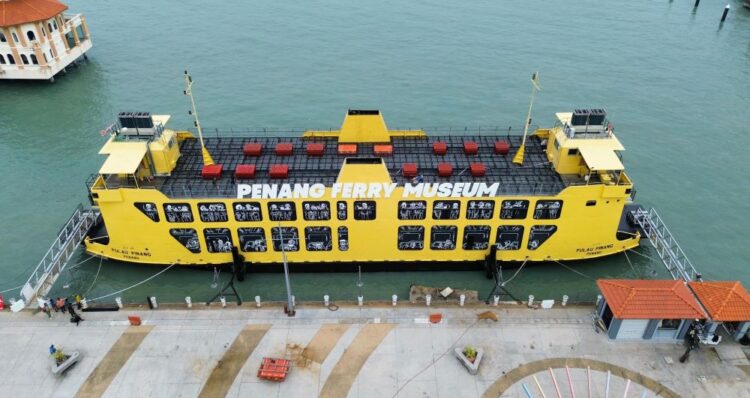A cherished symbol of Penang’s maritime heritage will enter a new chapter this Malaysia Day, as the Penang Ferry Museum prepares to officially open its doors on September 16, 2025.
The museum, housed in the former “Pulau Pinang” ferry, aims to preserve and celebrate the long and storied history of the state’s iconic ferry service — one that has long been interwoven with Penang’s transportation, cultural and social fabric.
Established as a tribute to one of Malaysia’s oldest ferry services — which began operations as early as 1894 — the museum offers visitors an immersive journey through time.
Exhibits feature historical photographs, archival materials, restored facilities, the engine room and interactive displays detailing the evolution of ferry transport across the Penang Strait, from steam-powered vessels to the now-retired double-deck car ferries.
Before its grand public opening, the museum held a soft launch on August 30, 2025, welcoming Premier Pass Access holders for exclusive preview visits. The limited-capacity trial served as a technical and operational test run, ensuring all systems were in place ahead of the full opening.
Despite its low-key nature, the soft launch received overwhelmingly positive feedback from both local and international visitors. Many praised the initiative for its meticulous preservation work and for reviving public interest in a service that once served as a vital lifeline between Penang Island and the mainland.
Now, docked at Tanjung City Marina, adjacent to the Raja Tun Uda Terminal, the museum ferry — formerly known as Pulau Pinang — has been carefully refitted for stability and safety. The floating structure is secured by four pile guard units, which serve as shock absorbers and anchoring supports, ensuring the vessel remains stable and firmly moored at its new permanent berth.
The opening of the Penang Ferry Museum marks more than just the repurposing of a vessel; it signifies a heartfelt effort to enshrine the legacy of the Penang ferry — a beloved icon that has transported generations of commuters and now, stories.

